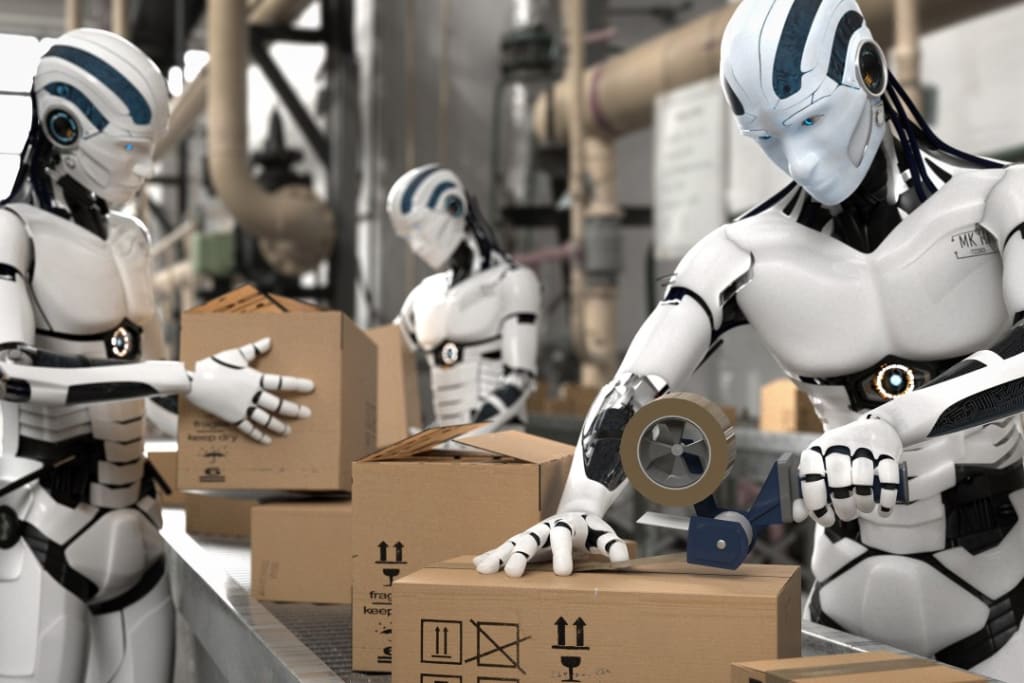The Future of Work: Examining the Effects of AI on the Job Market for Low-Skilled Workers
How the Integration of AI Technologies Could Impact Employment Opportunities for Low-Skilled Workers

Artificial intelligence (AI) technologies have rapidly advanced in recent years, and their integration into various industries has led to significant changes in the job market. While AI has the potential to enhance efficiency and productivity in the workplace, its impact on low-skilled workers remains a topic of concern. The integration of AI technologies could lead to significant changes in the employment opportunities available to low-skilled workers, potentially exacerbating existing inequalities.
One of the primary concerns surrounding the integration of AI technologies is the potential for job displacement. Low-skilled workers are often employed in industries that are vulnerable to automation, such as manufacturing, retail, and transportation. As AI technologies continue to advance, there is a risk that low-skilled workers may lose their jobs to automation. This could lead to unemployment, underemployment, and financial insecurity for many individuals and their families.
Furthermore, AI technologies could lead to changes in the nature of low-skilled work. As more tasks become automated, the skills required for entry-level positions may shift, leading to a mismatch between the skills that low-skilled workers possess and the skills that employers require. This could make it more difficult for low-skilled workers to find employment or advance their careers, leading to a widening skills gap.
On the other hand, AI technologies could also create new job opportunities for low-skilled workers. The integration of AI technologies requires significant investment and expertise, leading to an increase in demand for workers with skills related to AI development and maintenance. Additionally, as AI technologies continue to develop, new industries and job roles may emerge, leading to new opportunities for low-skilled workers.
However, it is important to recognize that the benefits of AI are not distributed equally. There is a risk that the benefits of AI will primarily benefit high-skilled workers, while low-skilled workers may experience job displacement without access to the same opportunities for reskilling or upskilling. This could exacerbate existing inequalities in the job market, leading to a widening income gap.
To mitigate the potential negative effects of AI on low-skilled workers, policymakers and employers must take action to ensure that these workers are not left behind. This could include providing access to training and educational opportunities that prepare low-skilled workers for the new types of jobs that AI will create. Additionally, employers could invest in programs that retrain or upskill existing employees to help them adapt to new technologies and stay competitive in the job market.
In addition to training and reskilling opportunities, policymakers and employers must also consider the ethical implications of AI in the job market. There is a risk that the use of AI in hiring processes could perpetuate bias and discrimination, leading to further marginalization of low-skilled workers who may not have access to the same educational or professional opportunities. Additionally, there is a need for regulations that protect the rights of workers in the age of AI, such as ensuring fair wages and working conditions. By taking a comprehensive and ethical approach to AI integration, we can help ensure a future of work that is fair, inclusive, and equitable for all.
In conclusion, the integration of AI technologies into various industries has the potential to significantly impact the job market for low-skilled workers. While AI could create new job opportunities, it also poses a risk of job displacement and exacerbating existing inequalities. It is crucial for policymakers, employers, and society as a whole to take action to ensure that low-skilled workers are not left behind in the age of AI. By providing access to training and reskilling opportunities, we can help ensure that all individuals have access to the benefits of AI, creating a more equitable and sustainable future of work.





Comments
There are no comments for this story
Be the first to respond and start the conversation.